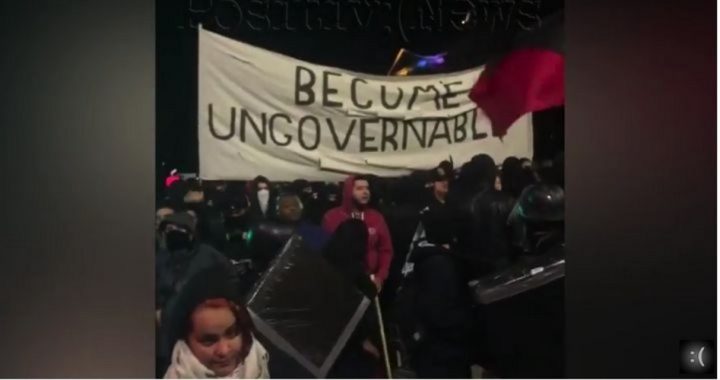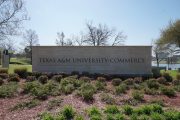
There has been much criticism surrounding the decision by campus police at the University of California, Berkeley not to intervene in the violent protests that successfully shut down a scheduled speech by right-wing gay provocateur Milo Yiannopoulos. While eyewitnesses contend that the lack of police intervention allowed the protests to escalate, police are defending the decision to allow the protests to progress, stating that they believed officer intervention would only have served to inflame tensions.
As protesters broke windows, assaulted Trump and Yiannopoulos supporters, set a large fire outside of the building where Yiannopoulos was supposed to speak, and even hurled rocks at police officers, the campus police decided to employ a hands-off approach, though there were only about 150 protesters. Approximately $100,000 worth of damage was done, but only one person was arrested.
One eyewitness, UFC veteran and professional MMA fighter Jake Shields, told Breitbart News that he was present at the event and was compelled to rescue a man who was being attacked by the protesters after police allegedly refused to intervene. “Like fifteen people were trying to attack him and others were cheering them on,” explained Shields. “No one helped, no one had the balls to step in, so my reaction was to run in and start picking people off.”
“More chaos started happening, so I went up to the police and tried bringing them back, but they were just like ‘we’re not really going over there. You should just stay away.’” He continued, “I don’t know if they were taking orders from someone or if they were just being lazy. I don’t know what the situation was, but it was pathetic to watch. Our police, who are supposed to defend the citizens of Berkeley. It’s a sad scene that they would allow that.”
Berkeley police Sgt. Sabrina Reich states that officers feared that their involvement would have provoked serious injuries and increased violence. Further, Reich told Fox News that if the police would have made more arrests, they would have had to give up crowd control duty to escort the arrestees to jail.
“It was a crowd-control situation,” she claimed. “We steered clear of individual action.”
Campus Police Chief Margo Bennett made similar assertions, indicating that having officers move in on the protesters would have caused “a lethal, horror situation.”
“We have to do exactly what we did last night: to show tremendous restraint,” she said.
But John Bakhit, a lawyer for the union representing about 400 of the system’s police officers, contends that the opposite is true and that the decision to adopt a “hands-off” approach put both police and students in danger. He argues that officers should have been permitted the discretion to make arrests. “The frustrating thing for the police officers is that they weren’t allowed to do their jobs,” he added.
Conservative pundit Ben Shapiro made a similar point to Fox News’ Martha MacCallum during a discussion about the violence at Berkeley. Shapiro said that part of the problem is that college administrations do not allow campus police the ability to shut down violent protests like the one at Berkeley.
Campus police have claimed that they were not prepared for the extent of the protests or for the presence of the black bloc agitators believed to be involved in the protests. “We have never seen this on the Berkeley campus,” Mogulof said. “This was an unprecedented invasion.”
However, the Los Angeles Times countered this claim:
To be sure, the University of California system has seen far larger disruptions by ordinary students. Window breaking and barricade tossing were common during Regents meetings when tuition was being raised significantly in the last decade, and protesters at UCLA trapped the Regents and other UC officials in a meeting building and garage.
Sadly, it seems that rather than protecting the free speech of non-violent speakers such as Yiannopoulos and his supporters, UC Berkeley is more concerned about the free speech of protesters, even those who resort to violence.
Dan Mogulof, assistant vice chancellor and spokesman for the UC Berkeley, said that administrators at Berkeley intend to protect First Amendment rights, but may need to more closely examine certain events if they have the potential for disruption and damage on campus. “It’s not about limiting free speech,” he added, but about the security of the campus.
Similarly, Police Chief Bennett said that the campus may need to reconsider allowing controversial speeches to take place at night.
So the violent rabble-rousers, by being louder and more intimidating than their conservative counterparts, win. It is a tactic right out of George Orwell’s Animal Farm — drowning out the opposition by loudly chanting leftist-approved talking points — “Two legs bad, four legs good!” In this case, it’s, “Conservatives bad, Marxists good,” I suppose.
But despite the totalitarian nature of using violence to shut down free speech, one of the groups taking credit for the protest, Refuse Facism, has deluded itself into believing that the protest was “righteous.” The communist group contends it was part of a “broad, meaningful protest” intent on supporting and defending “critical thought, the ability to pursue and debate what is actually true, science and scientific thinking, the space to dissent,” and to “oppose this whole fascist direction and reordering of the world.”
The hypocrisy and irony of a group shutting down free speech to encourage debate and oppose fascism is clearly lost on them.




